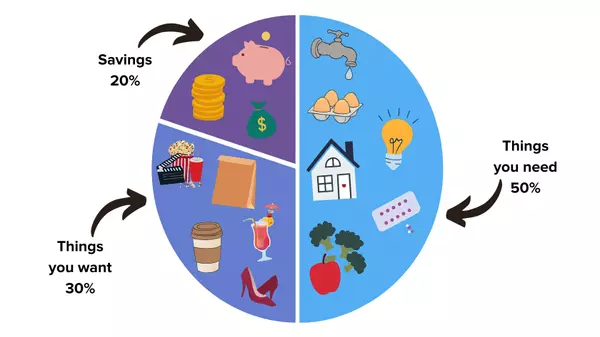How Maine’s Real Estate Market Differs from the Rest of New England (and Why That Matters to Sellers)
Understanding the New England Real Estate Landscape
New England’s real estate market is as diverse as its landscapes. From bustling cities to quiet coastal towns, the region offers something for every buyer. But how does Maine stand out from the rest of New England? And more importantly, what do these differences mean for sellers?
The Unique Geography of New England
New England is made up of six states—Maine, New Hampshire, Vermont, Massachusetts, Rhode Island, and Connecticut. While they share historical charm and scenic beauty, each state has its own real estate trends, largely shaped by geography, population, and economic factors.
Market Trends Across New England States
•Massachusetts and Connecticut have higher home prices due to urban centers like Boston and Hartford.
•Vermont and New Hampshire attract buyers looking for rural charm but have smaller markets.
•Rhode Island, being the smallest state, has a concentrated housing market with coastal demand.
Maine, on the other hand, operates on a different rhythm. Its market is unique, offering opportunities and challenges for sellers.
Key Differences in Maine’s Real Estate Market
Maine’s Rural and Coastal Appeal
Unlike Massachusetts or Connecticut, which have major metropolitan areas, Maine is known for its vast rural landscapes, rugged coastline, and small-town feel. This attracts buyers looking for a quieter lifestyle, vacation homes, or investment properties.
Home Prices in Maine vs. Other New England States
Maine has historically had lower home prices compared to Massachusetts and Connecticut. However, demand has surged in recent years, with home values increasing—especially in desirable areas like Portland, Brunswick, and the Midcoast region.
The Pace of the Market: Why Maine Moves Slower
While Boston’s real estate market moves fast, Maine’s market tends to be slower. Fewer buyers mean longer listing periods, and sellers need patience. However, with the right pricing strategy, homes can sell quickly—especially in sought-after waterfront locations.
Seasonal Market Fluctuations
Maine’s real estate market is heavily influenced by the seasons.
•Spring & Summer: Peak selling seasons, when buyers are most active.
•Fall: A slower but still viable time to list, especially for serious buyers.
•Winter: The slowest season, as harsh weather deters buyers from house hunting.
Property Taxes and Affordability
Compared to Massachusetts and Connecticut, Maine offers lower property taxes, making it attractive for out-of-state buyers looking for affordability. However, rural areas may have fewer services, which some buyers consider when deciding where to purchase.
Why These Differences Matter to Sellers
Pricing Your Home Strategically
Since Maine’s market moves at a slower pace, pricing too high can leave a home sitting for months. Competitive pricing based on local market trends is crucial to attracting buyers.
Understanding Buyer Demographics
Many buyers in Maine aren’t locals. Instead, they’re:
•Out-of-state retirees looking for a peaceful retirement spot.
•Remote workers seeking affordability and quality of life.
•Vacation home buyers who want a second home along the coast or in the mountains.
The Importance of Local Marketing
Since Maine attracts buyers from outside the state, a strong online presence is essential. High-quality photos, virtual tours, and targeted digital marketing can help sellers reach the right audience.
The Role of Vacation and Second Home Buyers
Maine’s real estate market sees a significant number of vacation home buyers, especially in areas like Bar Harbor, Kennebunkport, and the Lakes Region. These buyers have different motivations than primary homebuyers, so marketing a home as a vacation retreat can be a smart strategy.
Tips for Selling in Maine’s Unique Market
Work with a Local Real Estate Expert
Selling a home in Maine isn’t the same as selling in Boston or Hartford. A local real estate agent understands the nuances of the market and can guide sellers on pricing, marketing, and timing.
Highlight Maine’s Lifestyle and Quality of Life
Buyers don’t just purchase homes—they buy into a lifestyle. Maine’s appeal lies in its nature, slower pace, and strong sense of community. Emphasizing these aspects can help attract the right buyers.
Timing Your Listing for the Best Results
Since Maine’s market is seasonal, timing matters. Listing in spring or early summer gives sellers the best chance of attracting buyers before winter slows things down.
Conclusion
Maine’s real estate market is a world apart from the rest of New England. With its slower pace, lower home prices, and strong seasonal fluctuations, sellers need to approach the market strategically. Pricing correctly, marketing effectively, and understanding buyer demographics can make all the difference. Whether you’re selling a year-round home or a vacation property, working with a knowledgeable local agent can help you navigate Maine’s unique real estate landscape successfully.
FAQs
1. How long does it typically take to sell a home in Maine?
It depends on location and pricing. On average, homes in popular areas like Portland may sell within weeks, while rural properties may take several months.
2. Is Maine’s real estate market competitive?
Yes and no. Certain areas, like Portland and the Midcoast, are highly competitive, while rural parts of the state see slower movement.
3. What are the best months to sell a home in Maine?
Spring and early summer are the best times, as more buyers are actively looking. Winter is typically the slowest season.
4. Do out-of-state buyers drive up home prices in Maine?
Yes, in some areas. Many buyers from Massachusetts and New York look to Maine for second homes, which can increase demand and prices in coastal and desirable regions.
5. What should I do if my home isn’t selling?
Reevaluate the price, enhance your marketing efforts, and consider making small upgrades to increase its appeal. A local agent can help determine the best strategy.
Categories
Recent Posts











